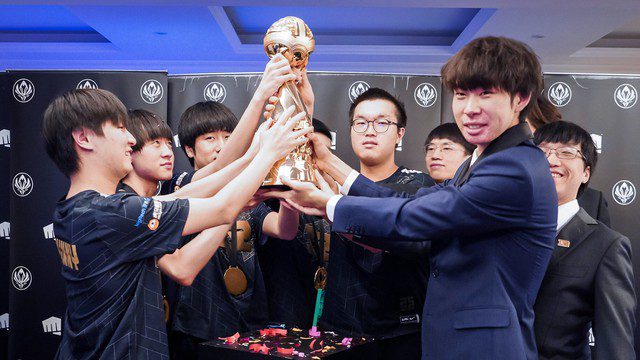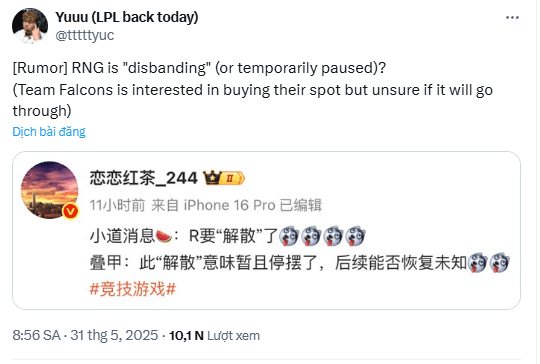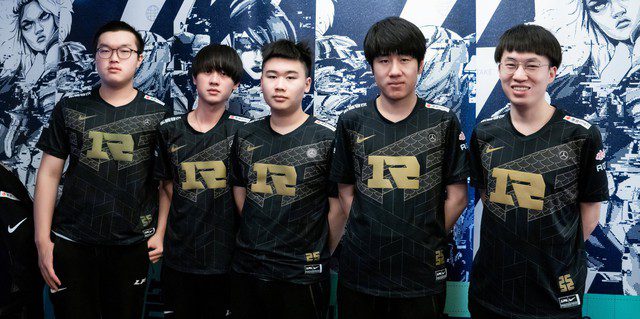MSI Champion May Face Disbandment
As we know, in recent years, the team Royal Never Give Up (RNG) has not been performing at the level they once did. The MSI not only highlighted the team’s decline in international competitions but also reflected a lack of competitiveness in domestic leagues, with no notable achievements since the departures of Xiaohu and Ming. Thus, RNG continues to be surrounded by rumors and various controversies.
Recently, information has surfaced suggesting that RNG may be preparing for disbandment. Their slot in the LPL has reportedly become available for sale. Notably, this season concluded prematurely for this team, and RNG is anticipated to be “the water player” until at least 2026.

According to reports, within the League of Legends community, there are rumors that RNG has disbanded or will cease operations. Additionally, the team Team Falcons is said to be interested in acquiring RNG’s slot in the LPL. However, sources from the LPL indicate that this rumor has not yet been confirmed. Furthermore, RNG has faced numerous controversies, and it would be a significant loss if this team “decides” to leave professional League of Legends.

A Sad Conclusion for the MSI Champion
Indeed, in the esports industry, especially in the competitive scene, RNG has always been among the top teams with substantial investments. Therefore, if the situation comes to a halt, it would be a significant change, especially since the LCK has been consistently dominating, and the prestige associated with the LPL has been dwindling. It seems that MSI is the only major tournament where the LPL can actively participate. However, this MSI is not quite the same, as the tournament has only recently started integrating more connectivity and benefits for the winning teams.

Moreover, RNG has been considered a major player and a significant investment over the years, which is becoming increasingly rare among top teams in the LPL. Therefore, if RNG does indeed disband, it would not only be a sad story but also a notable shift for the Chinese League of Legends scene, which is seen as the largest competitor to the LCK.




















